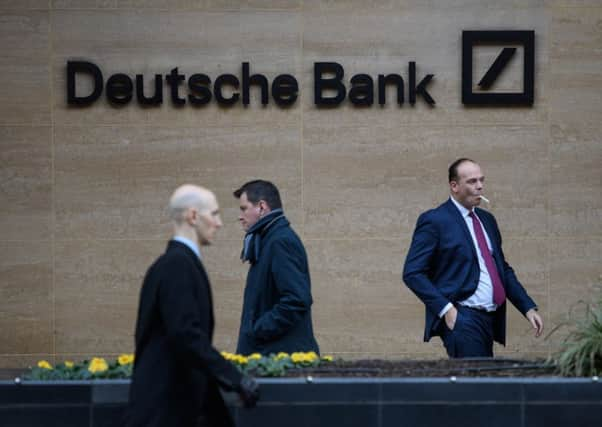Martin Flanagan: Deutsche bemused by Russian deception
This article contains affiliate links. We may earn a small commission on items purchased through this article, but that does not affect our editorial judgement.


It is not as if the country’s recent economic problems and the “cultural” repercussions were not well-known. The Soviet Union broke apart in 1991 through a mixture of a stagnant economy, failed attempts at political reform, the Chernobyl nuclear disaster and getting bogged down in a war in Afghanistan. Russia subsequently gained a reputation in the City of London as the “wild East” as crime in that country became virtually institutionalised, with public assets worth billions of dollars being sold for hundreds of millions of dollars.
At one stage, Iceland was rumoured to be venue of choice for washing the rotten roubles. But Deutsche Bank in the regulatory dock shows the web went wider.
Advertisement
Hide AdAdvertisement
Hide AdThe UK’s Financial Conduct Authority (FCA) has hit the bank with a £163m fine for anti-money laundering shortcomings and exposing our financial system to criminal activity between 2012 and 2015.
The New York State Department of Financial Services fined Deutsche Bank $425m for the abuses, which it says took place at its Moscow, London and New York offices.
The rap sheet for the banking giant is a case of round up the normal suspects: inadequate customer due diligence; failure to keep the front office of its Deutsche’s Russian-based subsidiary on its toes as regards its Know Your Customer obligations; flawed customer and country risk rating methodologies; inadequate anti-money laundering IT infrastructure.
It clearly cannot be all laid at the door of the DB Moscow subsidiary. There were systemic failings here, not just a rogue Russo offshoot.
Was it in January 2011 that Bob Diamond, the soon‑to‑be‑ousted boss of Barclays bank, told UK politicians in public session that the post-crash “time for remorse is over”?
Shelling out
It is a stretch to interpret oil major Shell’s sale of a massive slab of its assets in the North Sea as a “vote of confidence” in the area. Pragmatic, even understandable given the macro backcloth; but, regarding confidence, big companies usually vote with their feet.
